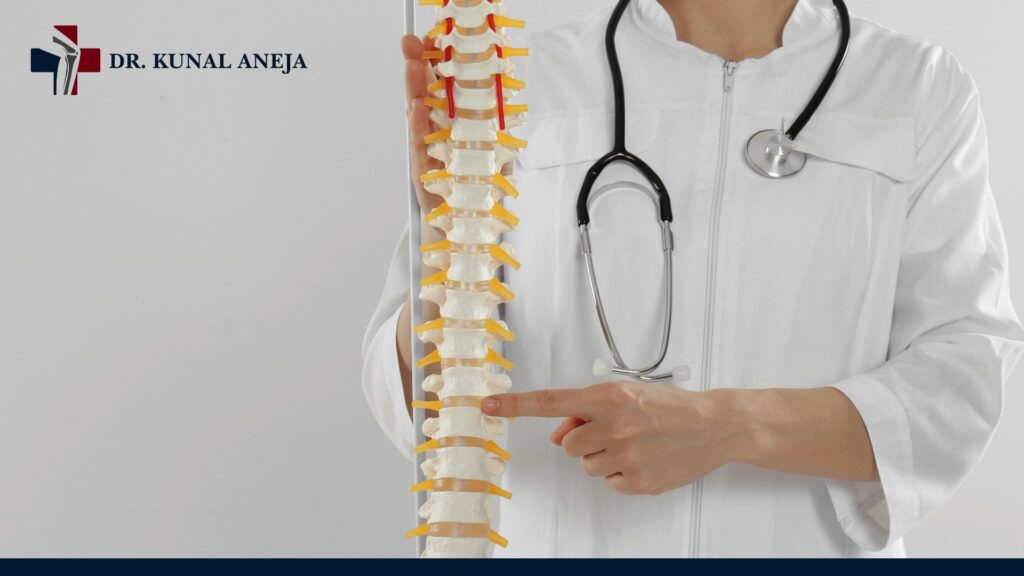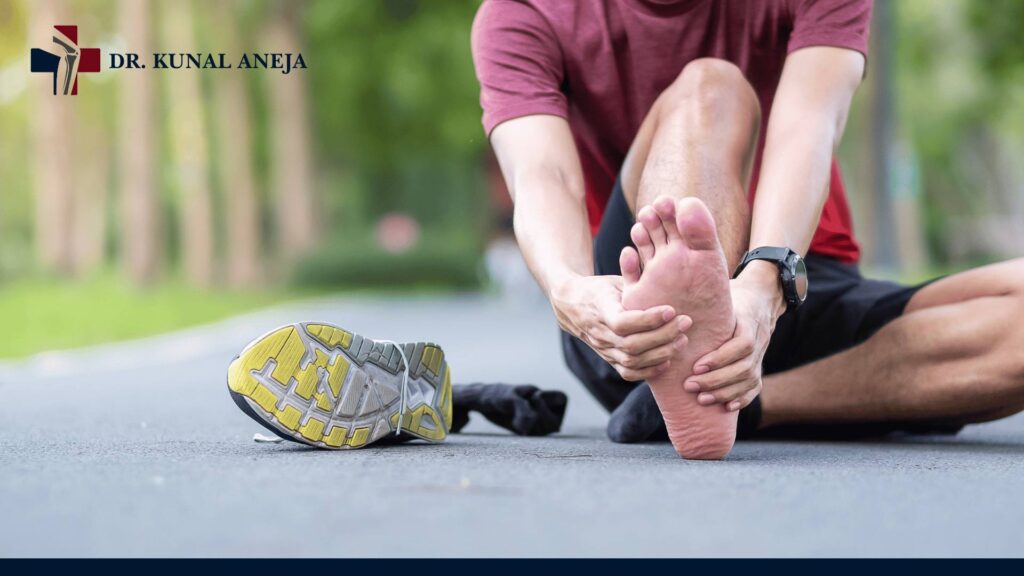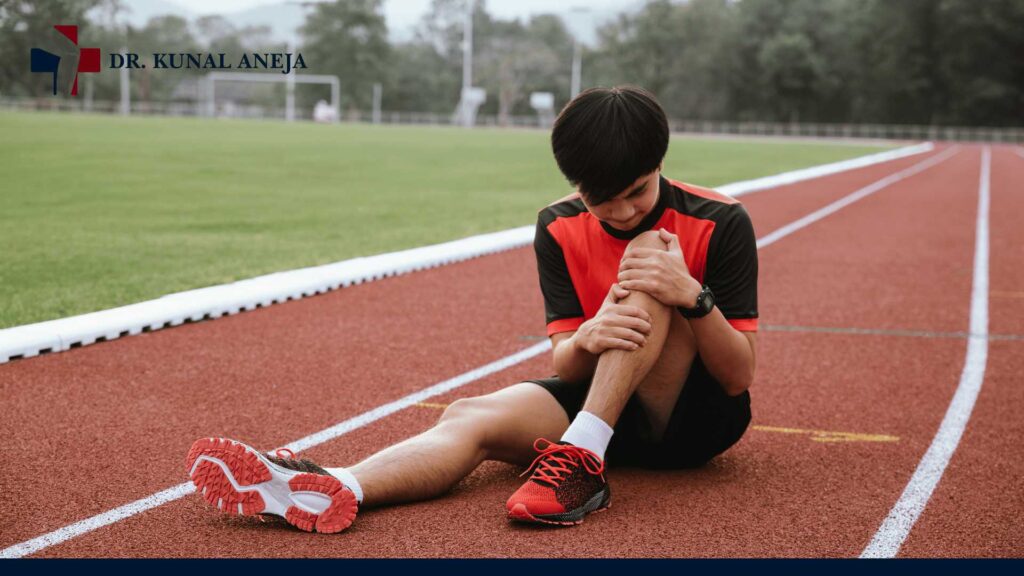Overview
Picture this – you’re out for a casual run or even just climbing stairs, and suddenly your knee gives out. You brush it off. Fast forward a few months, and now even sitting for long periods feels like a chore. Sound familiar? Orthopaedic issues creep up slowly but can drastically affect daily life. Finding the best orthopaedic surgeon in Delhi isn’t just about relieving pain – it’s about reclaiming your movement and quality of life.
Dr. Kunal Aneja, a triple board-certified and fellowship-trained orthopaedic surgeon, is at the forefront of advanced orthopaedic treatments in Delhi. With specialized expertise in joint replacement and sports medicine, Dr. Aneja has trained at globally renowned centers and brings advanced solutions to his patients. If you’ve been searching for lasting relief and expert care, Dr. Kunal Aneja’s approach to orthopaedics might just be what you need.

What are the Most Common Orthopaedic Issues and Their Symptoms?
From weekend warriors to office workers, orthopaedic issues affect everyone. Some of the most common conditions include:
| Condition | Symptoms |
|---|---|
| Osteoarthritis | Joint stiffness, swelling, and pain |
| Rotator Cuff Tears | Shoulder pain, weakness, limited mobility |
| ACL Injuries | Knee instability, swelling, and pain |
| Herniated Discs | Back pain, nerve pain radiating to legs |
| Carpal Tunnel Syndrome | Hand numbness, tingling, and weakness |
Recognizing symptoms early can prevent conditions from worsening. If you’re experiencing persistent pain, swelling, or difficulty moving, it’s time to consult a specialist.
When Should You Consider Orthopaedic Surgery for Joint Pain?
Surgery isn’t the first step – but sometimes, it’s the best step. How do you know when it’s time?
- Persistent Pain: If conservative treatments (physiotherapy, medication) haven’t helped.
- Limited Mobility: Difficulty performing daily activities.
- Joint Deformities: Visible swelling, bowing, or deformities.
- Frequent Instability: Repeated dislocations or joint weakness.
How Do You Choose the Best Orthopaedic Surgeon in Delhi?
Choosing the right surgeon can make or break your recovery journey. Consider the following when making your decision:
- Credentials and Certifications: Look for board certifications and specialized training.
- Experience: Years in practice and focus on specific procedures.
- Patient Testimonials: Real experiences provide insight into patient care.
- Technological Expertise: Advanced surgical techniques like robotic joint replacement.
- Communication Style: A surgeon who listens and explains.

What Questions Should You Ask Your Orthopaedic Surgeon Before Surgery?
Preparation is key. Here’s what you should ask:
- What are the non-surgical alternatives?
- What will the recovery process look like?
- What’s the success rate of this procedure?
- Are there any risks I should be aware of?
- How many times have you performed this surgery?
Asking these questions not only builds trust but ensures you’re making informed decisions.
How Can You Prepare for Successful Orthopaedic Surgery?
Success starts before surgery. Here’s how you can prepare:
- Maintain a Healthy Weight: Reduces stress on joints.
- Strengthen Muscles: Pre-surgery physiotherapy can speed up recovery.
- Plan for Recovery: Arrange help at home for the first few weeks.
- Quit Smoking: Enhances healing and reduces surgical risks.
- Follow Pre-Op Instructions: Diet, fasting, and medication restrictions matter.
What Should You Expect During the Recovery Process After Orthopaedic Surgery?
Recovery isn’t linear – it’s a gradual process. Here’s what to expect:
| Recovery Phase | Duration | Key Milestones |
|---|---|---|
| Immediate Post-Surgery | 1-2 weeks | Pain management, reduced swelling |
| Early Rehabilitation | 3-6 weeks | Start light exercises |
| Advanced Recovery | 2-3 months | Strength building, mobility return |
| Full Recovery | 6-12 months | Return to full activities |
Patience is crucial. Trust the process and adhere to your rehabilitation plan.
How are Advancements in Orthopaedic Surgery Improving Patient Outcomes?
The field of orthopaedics is evolving rapidly. Some groundbreaking advancements include:
- Robotic-Assisted Surgery: Enhances precision and reduces recovery time.
- 3D Printing: Custom implants tailored to individual anatomy.
- Minimally Invasive Techniques: Smaller incisions, faster healing.
- Regenerative Medicine: Stem cell therapy for cartilage regeneration.
These innovations are transforming patient experiences, leading to faster recovery and better long-term outcomes.
Why is Dr. Kunal Aneja Considered the Best Orthopaedic Surgeon in Delhi?
Dr. Aneja’s expertise spans across robotic joint replacement, arthroscopy, and sports medicine. His training from world-class institutions in Australia, the UK, and Hungary equips him with a global perspective on orthopaedic solutions.
Beyond his technical skills, Dr. Aneja prioritizes patient care. His holistic approach ensures patients receive tailored treatment plans, emphasizing both surgical precision and comprehensive rehabilitation. If you’re searching for the best orthopaedic surgeon in Delhi, Dr. Kunal Aneja’s reputation and patient success stories speak for themselves.

Conclusion
Your mobility and quality of life deserve the best care. Dr. Kunal Aneja stands out as the best orthopaedic surgeon in Delhi, combining international expertise with compassionate care. Whether you’re dealing with chronic joint pain or a sports injury, consulting Dr. Kunal Aneja is a step towards reclaiming your active lifestyle.
FAQs
1. How long does it take to recover from orthopaedic surgery?
Ans. Recovery timelines vary, but most patients experience significant improvement within 3 to 6 months.
2. Is robotic surgery better for joint replacements?
Ans. Yes, robotic-assisted procedures offer greater precision, leading to faster recovery and better alignment.
3. What is the cost of orthopaedic surgery in Delhi?
Ans. Costs depend on the procedure type and hospital, but Dr. Kunal Aneja’s clinic offers competitive pricing with top-notch care.
4. Can physiotherapy replace surgery for joint pain?
Ans. In some cases, yes. Physiotherapy can delay or even eliminate the need for surgery if started early.
5. How do I book a consultation with Dr. Kunal Aneja?
Ans. You can book an appointment through his website or by calling his clinic directly.

